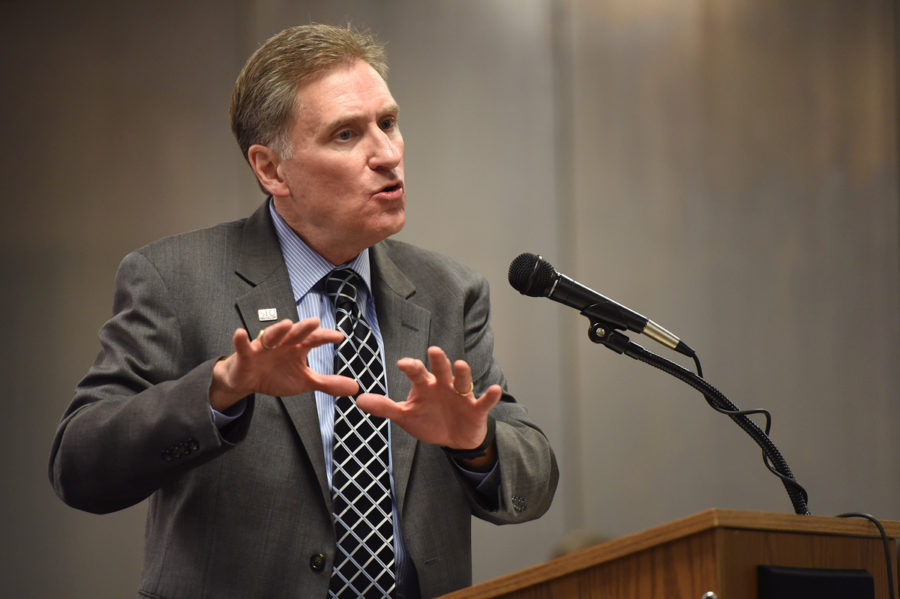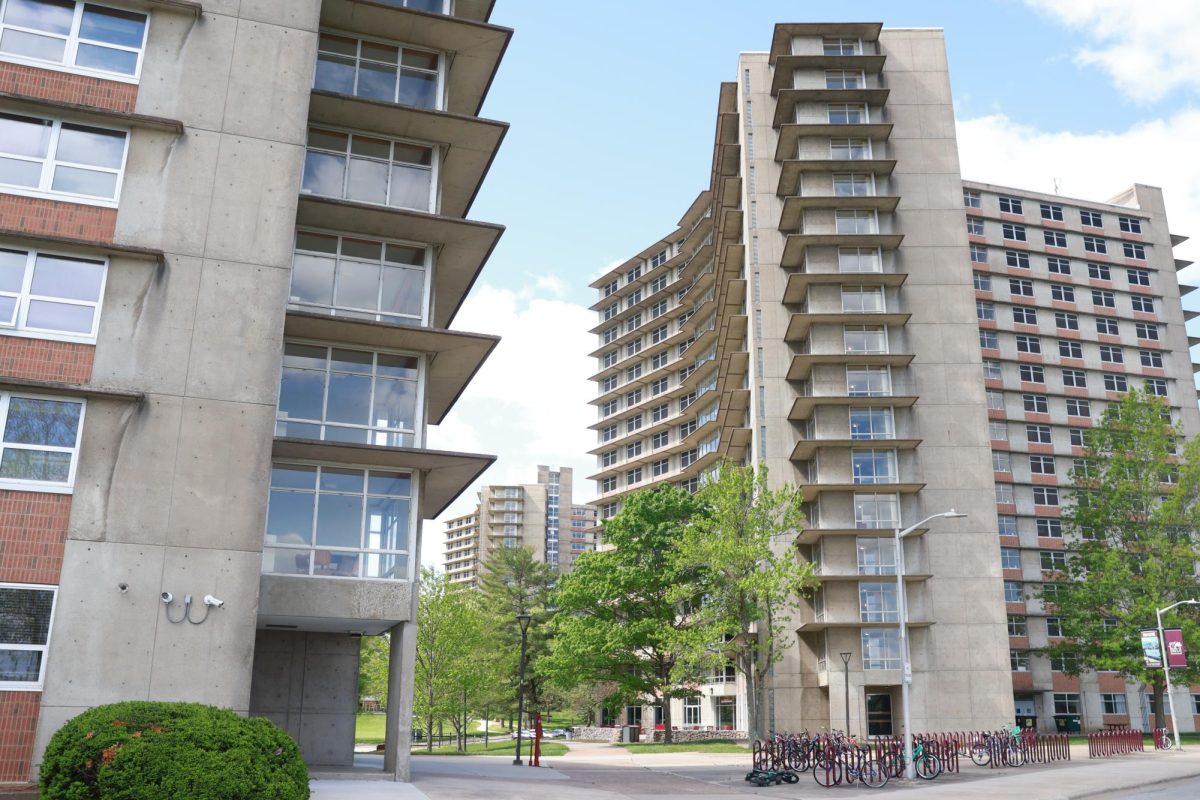Board of Trustees addresses DACA, Title IX, Africana studies
September 14, 2017
During its regularly scheduled meeting Thursday, the Board of Trustees and meeting attendees discussed strategies for handling recent policy developments for undocumented students, Title IX regulations and the board’s proposed closure of the Africana studies program.
DACA
President Donald Trump announced last week he was ending a program to shield young immigrants from deportation, calling on Congress to pass legislation to address Deferred Action for Childhood Arrivals recipients within the next six months.
Advertisement
The legislation, called the Dream Act, would grant legal status to those who were brought into the United States as children and has been passed around in Congress since 2001 with little success.
System President Randy Dunn applauded Sen. Dick Durbin for his advocacy of the Dream Act.
“[Durbin] is moving forward in a very strong and positive way to use that as the legislation that puts the DACA fix into place,” Dunn said.
There are 68 or 69 undocumented students system-wide affected by this, Dunn said.
“We’ve tried to be very clear … about stating our commitment to these students, wanting to offer every support that we can as they go through a very, very uncertain time in their lives,” Dunn said.
Title IX
Also at issue was the university’s strategy to implement possible changes to Title IX announced by Secretary of Education Betsy DeVos last week.
Advertisement*
DeVos said she plans to rescind Title IX-related policies enacted during the Obama administration, saying the current laws force schools to operate at the lowest standard of proof in sexual assault cases.
The 45-year-old law states “no person in the United States shall, on the basis of sex, be excluded from participation in, be denied the benefits of, or be subjected to discrimination under any education program or activity receiving federal financial assistance,” and it extends to sexual assault cases that occur on campuses.
The university will continue to operate under current federal regulations, Dunn said.
“The rules we’re under now are on the basis of guidance from the Department of Education,” Dunn said.
He also wanted to reassure students that the system will not stop providing the “comfort and support” that they have in the past.
“This is not going to be any rolling back to our commitment to any students from SIU that feel they’ve been victimized in some way,” Dunn said.
Africana studies
A number of attendees spoke to the board in defense of the Africana studies program.
The undergraduate degree program is on the chopping block following Board of Trustees approval of the “Financial Sustainability Plan” in July. This plan would cut about $26 million from the university, including seven degree programs. The bachelor’s in Africana studies is one of these.
One of the program’s defendants was Ella Phillips Lacey, a member of the Racial Justice Coalition of Carbondale. Lacey said she is a three-degree graduate, an emeritus faculty member of the School of Medicine and a life member of the Alumni Association.
She said the coalition is deeply troubled about the possible closure of the program.
“[This] would be very insensitive to the needs continually evident in our country and, especially now, for racial and cultural inclusion,” Lacey said.
She said it is one of the few programs that are available on campus that foster academic inclusion of African American students.
Lacey asked the board if they could evaluate Africana studies by including some variables to evaluate the necessity of the program. She also suggested weighing the advice of advisers to those in the major and taking into account students that double major in Africana studies and another degree program.
Linda Flowers, a member of Carbondale’s NAACP, also spoke in support of the program.
Flowers, also a three-degree SIU alumna and a life member of the Alumni Association, voiced disapproval for the elimination of Africana studies.
She said board members should consider the racial tension and unrest in the country, particular the recent events in Charlottesville, North Carolina.
“I can testify firsthand of the differences in students of color — academic, social, emotional, behavioral and cultural outcomes — when there is diversity of staff, administrators and thoughts,” Flowers said.
She said the elimination of the program won’t result in any savings for the university because all the faculty members are tenured and also teach in other departments.
Montemagno’s plan for SIUC
This was the first board meeting for SIUC’s newly-appointed Chancellor Carlo Montemagno.
Montemagno said that although the university recently received the “Excellence in Diversity” award for the fifth year and was placed into the top four percent of safest colleges in the country, there is still work to be done.
“Now, not everything is peaches and roses,” Montemagno said. “We have some enrollment challenges that are facing our institution.”
This fall, enrollment fell by nearly nine percent compared to fall 2016, according to university officials.
He said in order to improve enrollment, the university has to keep students at the core of everything it does as administrators define the institution’s identity.
SIU needs to elevate its academic programs, he said.
“Having an academic enterprise that’s not only good, but it is the best in Illinois, the best in the nation, the best in the world,” he said. “That’s what we need to aspire and we need to work continually to do.”
The chancellor said this is a prime opportunity to reform recruitment processes, revitalize retention efforts and ensure student success after graduation.
“We’re going to use this opportunity to tear down those stovepipes and reorganize ourselves,” Montemagno said.
Montemagno’s “state of the university” address will take place at 10 a.m. on Sept. 26. During this, he said he plans to further discuss his vision for the campus.
Other items passed during the meeting:
A patio to be built by the Ralph E. Becker Pavilion near Campus Lake will be named Chris Hines Patio after alumnus Charles Hines, a southern Illinois native.
The purchase of a $644,355 lease to a medical office building by the School of Medicine
The $861,891 purchase of a three-year, third-party administrator for pharmaceutical program at the School of Medicine
Managing editor Abbey La Tour can be reached at alatour@dailyegyptian.com or on Twitter at @LaTourAbbey
To stay up to date with all your southern Illinois news, follow the Daily Egyptian on Facebook and Twitter.
Advertisement









